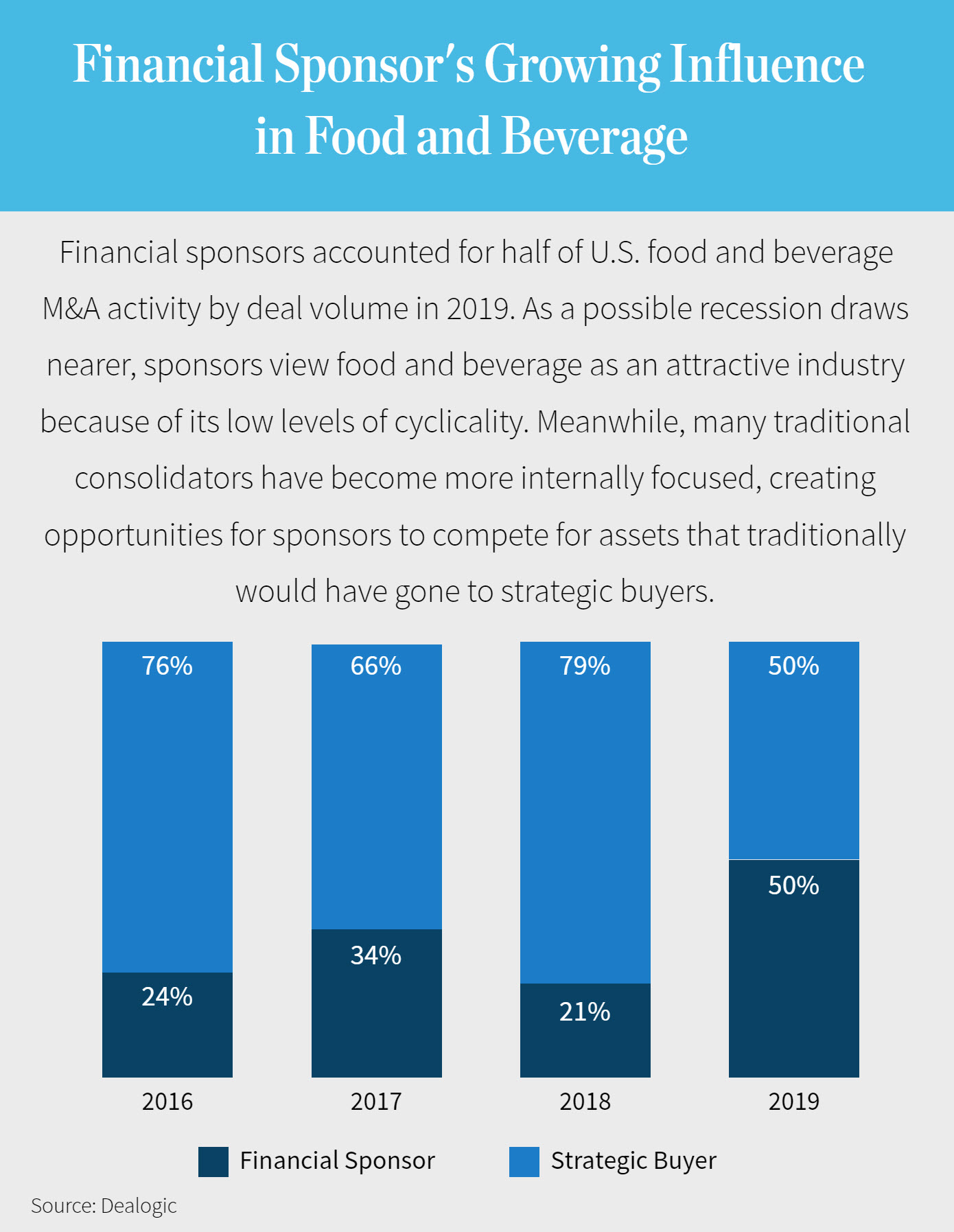The food and beverage industry saw no shortage of major developments in 2019. Headline-grabbing events during the year included the initial public offerings of Beyond Meat and Chewy, a slew of cost-cutting measures and divestitures by some of the world's largest branded food companies, and Kraft Heinz writing down more than $15 billion to account for the deteriorating value of some of its most well-known brands.
Despite a mild slowdown in overall deal activity in 2019, the M&A environment remains attractive for sellers. Much of the buyer demand is being driven by financial sponsors that are rotating into more defensive sectors as a recession draws nearer; financial sponsors are also taking advantage of opportunities to bid aggressively for assets that in past markets would have been acquired by strategic buyers. Trends related to plant-based foods, e-commerce, and private label are certain to command investors' attention and drive acquisition strategies in 2020.
In this issue of Food for Thought, we examine the major trends that shaped the food and beverage industry in 2019 and how they will affect M&A and capital-raising activity in 2020.
Highlights include:
- Strategics' heightened discipline creates opportunities for financial sponsors
- Beyond Meat and Chewy IPOs headline 2019 equity capital markets
- Private label continues to gain market share and shelf space
- Plant-based becomes vital outlet to showcase innovation
- E-commerce: The untapped frontier for food and beverage



